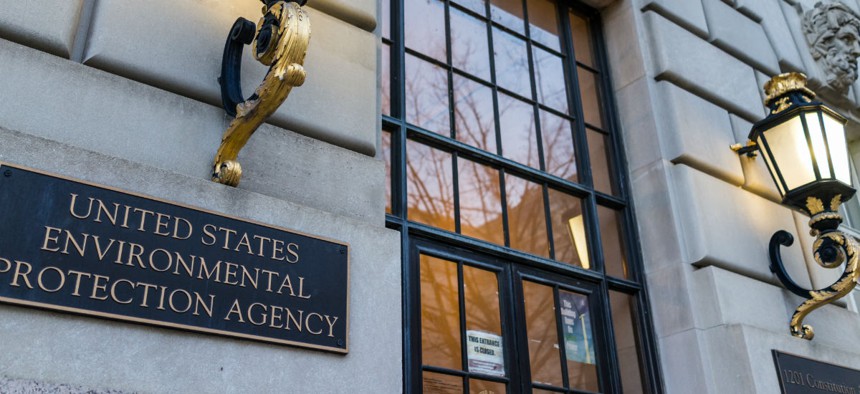EPA Chief's Scientific Advisory Panel Moves Draw Mixed Reactions
Complaints range from pro-industry bias to unfair denials of spots to grant recipients.
After weeks of news leaks and controversy, Environmental Protection Agency Administrator Scott Pruitt on Nov. 2 announced his slate of appointments to three key agency scientific advisory boards.
Coming two days after a decision to change membership criteria to disqualify EPA research grant-recipients from also serving on advisory boards, Pruitt’s moves generally drew praise from congressional Republicans and industry but brickbats from Democrats and science-related professional groups.
“To ensure that EPA is receiving the best independent scientific advice, I am appointing highly qualified experts and scientists to these important committees,” Pruitt said. In a fair, open, and transparent fashion, EPA reviewed hundreds of qualified applicants nominated for these committees. Members who will be appointed include experts throughout the environmental stakeholder community, including from NGOs, academia, industry, and state, tribal and local officials. The makeup of the membership speaks to EPA’s commitment to science and openness to expertise from a diverse array of perspectives. Those nominees willing to serve have committed to remaining financially independent from EPA grants during their tenures.”
The three panels are the Board of Scientific Counselors, the Clean Air Science Advisory Committee and the Science Advisory Board.
The new grant rules are designed to “strengthen member independence,” “increase state, tribal and local government participation,” “enhance geographic diversity” and “promote fresh perspectives,” Pruitt said in his Oct. 31 directive.
Reacting to the new grants policy, Rep. Lamar Smith, R-Texas, chairman of the House Science, Space, and Technology Committee, said Pruitt “is restoring the EPA advisory boards to their original purpose – to provide the administrator objective advice on science and technology policies. For eight years, the EPA has had science boards filled with members who have had conflicts of interest.”
Smith’s committee earlier this year passed a bill to reform the agency’s advisory boards along similar lines. “It’s impossible for these boards to be fair and balanced in their advice and their decisions when many board members are receiving grants and funds from the EPA.”
But committee Democrats on Nov. 3, along with counterparts on the Energy and Commerce panel, sent Pruitt a letter “strongly opposing the directive he issued imposing severe limitations on the scientific advice and expertise that the agency’s science advisory committees may receive. The directive would bar scores of the nation’s most qualified scientists from sitting on these committees. It also appears to violate the law regulating federal advisory committees,” wrote the group led by science panel ranking member Rep. Bernice Johnson, D-Texas, calling on Pruitt to withdraw the directive. “In reality, the measure will seriously diminish the scientific expertise the EPA receives. At the same time, the order will increase the number of industry representatives and industry-funded scientists providing advice to the EPA.”
The American Association for the Advancement of Science also denounced Pruitt’s changes. “This EPA decision is motivated by politics, not the desire for quality scientific information,” wrote its CEO, former Rep. Rush Holt, D-N.J. “Federal agencies should recognize and enable input of scientific and technical information that represents the best available evidence. The government must ensure that its science advisers possess the requisite scientific, medical and technical expertise to inform agency policies.”
He cited existing conflict-of-interest guidelines at EPA and the National Institutes of Health. “Leading scientific experts who are conducting environmental science research should not be prohibited from participating on EPA science adviser boards and committees if they have met the appropriate financial conflict of interest policy,” he added.
But Pruitt’s moves were applauded by the American Chemistry Council. “The changes…. will help ensure EPA’s scientific review panels are well balanced with perspectives from qualified scientists of diverse backgrounds and that board members are free of any disqualifying conflicts of interest,” CEO Cal Dooley said. He praised the appointments of his council’s own chemist Kimberly White to EPA’s Science Advisory Board and the naming of his staff toxicologist Rick Becker to the Board of Scientific Counselors.








